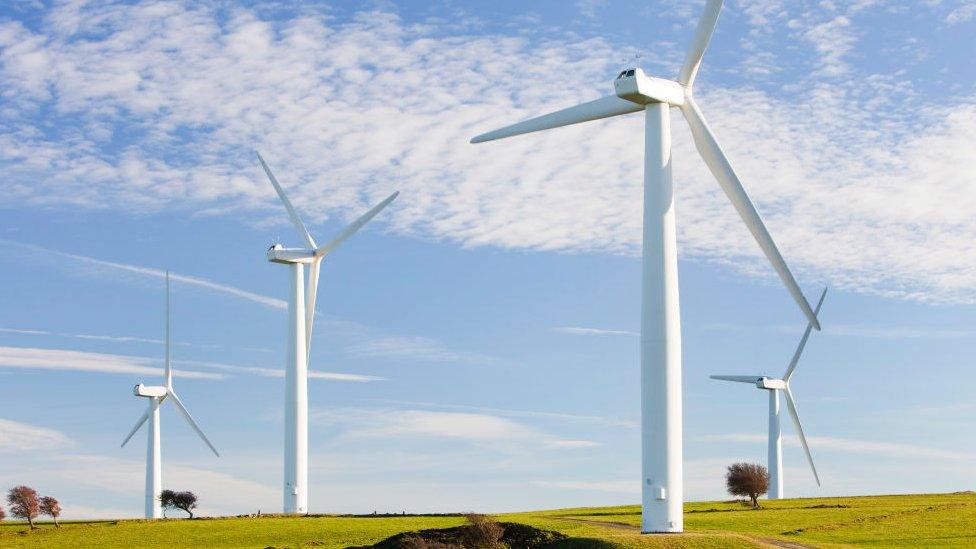Which new laws have been held up or shelved?
- Published
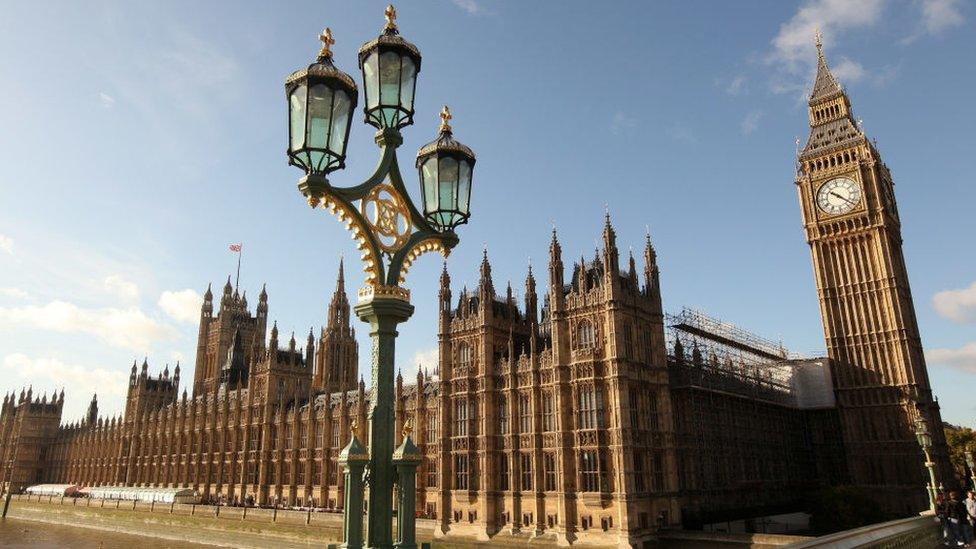
The UK has changed prime minister twice this year, leading to a backlog of legislation waiting to get through Parliament.
Some long-planned new laws - containing key government promises - are unlikely to make it and others could be watered down.
Of the 33 bills included in May's Queen's Speech - when Boris Johnson's government set out its plans for the year ahead - eight are yet to be introduced in Parliament at all.
Another six have not seen any progress since at least July.
The rapid collapse of Liz Truss's administration last month and the arrival of Rishi Sunak in No 10 means the status of many Johnson-era bills remains unknown.
Five of the bills in the Queen's Speech were already carried over from the previous session. Sessions are what parliamentary time is split into. They're normally a year long running from spring to spring.
Thirteen bills have either already been in parliament this month or are currently scheduled to return before December.
But it's been reported, external Prime Minister Mr Sunak plans to deprioritise at least some of those, such as the Retained EU Law (Revocation and Reform) Bill, external.
And one controversial bill announced after Queen's Speech, the Northern Ireland Protocol Bill, external, is likely to get held up by objections in the Lords.
The bill would override elements of the Brexit withdrawal agreement with the European Union.
Two bills in the Queen's Speech - Social Security (Special Rules for End of Life), external and Identity and Language (Northern Ireland), external - have completed all their parliamentary stages.

Bills in May's Queen's Speech
Not introduced: 8
Less than halfway through Parliament: 15
More than halfway through Parliament: 8
Finished all parliamentary stages: 2

The more recent Energy Prices Act, external, which provides the legal basis for the government's latest energy bills support measures, was emergency legislation - meaning it was fast-tracked through Parliament and became law only two weeks after being introduced.
"There are quite a few bills that are obviously making very slow progress," says Alice Lilly, senior researcher at the Institute for Government (IFG) think tank.
The period of national mourning following the Queen's death reduced the parliamentary time available, says Ms Lilly, but she adds: "We're definitely now getting to the stage where if the government introduce a brand new piece of legislation, if it was big and controversial they'd struggle to get it though by end of the session.
"There's all these other bills that are going through and languishing. Trying to get that through, when you also factor in Christmas and Easter recesses, that becomes difficult."
The political upheaval has also caused "changes in whips, Commons leader, people in Number 10 who were doing legislative affairs - each time new people come into roles they need to sit down, say what do we want to do with this, try to figure out priorities - that all takes time".
One former senior minister told the BBC they did not think the number of bills in their early stages was unusual and that there was enough time left for them to pass this parliament.
But there are question marks over the final shape of some high-profile pieces of legislation.
Online Safety Bill
One flagship bill reportedly being watered down is the Online Safety Bill, external. It's designed to improve protections for internet users, especially children.
The bill - first mooted under then-Prime Minister Theresa May and part of Boris Johnson's 2019 general election manifesto - will see its measures on "harmful but legal" content dropped, according to some media reports, external.
It has not progressed since July, and was paused under then-Prime Minister Ms Truss over free speech worries. Mr Sunak indicated at Prime Minister's Questions this week the bill will return in "due course".
"It was very closely associated with [then-Culture Secretary] Nadine Dorries. Now she's not in post it's up in the air," says Ms Lilly.
"There's quite a lot of disagreement among Tory MPs on the content of the bill."
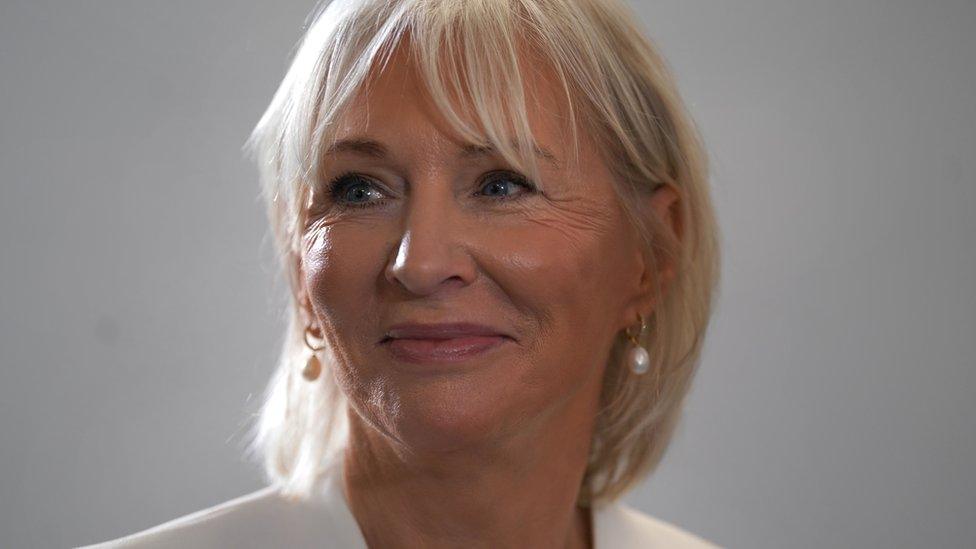
Nadine Dorries has been a strong proponent of the Online Safety Bill
Media Bill
The main provision of the Media Bill - another of Ms Dorries' bills - on privatising Channel 4, is widely expected to be dropped, external.
The bill would also require media platforms to make content from public service broadcasters - such as the BBC and ITV - more prominent.
Ms Dorries tweeted last month, external there was "widespread dismay" about the bills being put on hold, and that they'd been "signed off by cabinet all ready to go".
Renters' Reform Bill
First announced by Mrs May's government, this would scrap no-fault evictions and protect tenants from unscrupulous landlords.
It is taking a very long time to become law, having been mentioned in three different Queen's Speeches.
Housing campaigners had feared it was likely to be dropped under Ms Truss, but with Michael Gove, a supporter of the measures, back in government, they are hoping it will finally make it across the line.
Polly Neate, chief executive of Shelter, says "private renting is completely broken - anything less than wholesale reform won't give renters the security and stability they need".
"The government has promised major changes […] The Renters' Reform Bill is ready to go, so it's time for the government to stop stalling and make it law," she adds.
Bill of Rights
The Bill of Rights, external would limit the powers of the European Court of Human Rights in the UK.
It was championed by Dominic Raab - justice secretary under Mr Johnson, who has returned to the same job under Mr Sunak.
Ms Lilly, of the IFG, says the bill is one example of where "the political fortunes of individuals is having an impact".
"It's very much Dominic Raab's bill and had its first reading before the summer recess but a date isn't even scheduled for its second reading."
It was reported Liz Truss halted the plans, external.
But Mr Raab tweeted that it will now, external "return to Parliament in the coming weeks".
Conversion Therapy Bill
Ministers almost dropped plans to ban the practice of trying to change the sexuality of someone who is gay or bisexual entirely earlier this year.
Hours later they changed their minds and brought the plans back, but without measures outlawing conversion therapy for transgender people.
It's been reported new Equalities Minister Kemi Badenoch asked to review the plans - although the government has denied that any policy decisions have been made, external.
The bill was in the Conservatives' 2019 election manifesto.
Sophie Corlett, from mental health charity Mind, says the "government cannot keep delaying and watering down a ban that is essential to protecting millions of LGBTQIA+ people across Britain from unethical and inhumane treatment".
"Every day this ban is delayed, more people will be harmed by conversion 'therapy'. The government must bring forward the bill as a priority".
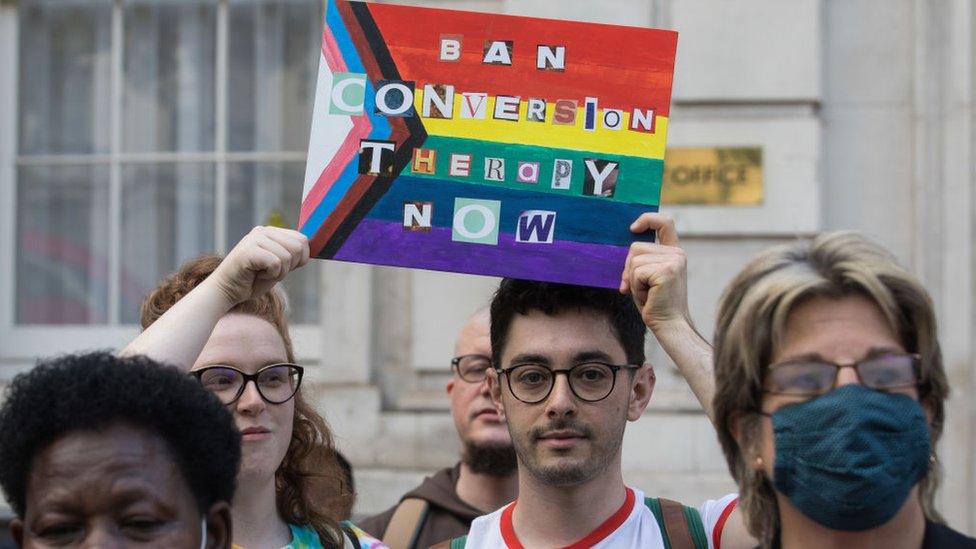
Transport Bill
This legislation has already been pushed until at least next May.
It would enable the creation of Great British Railways, a state-owned agency to replace the "fragmented" privatised rail system, setting timetables, prices, selling tickets and managing rail infrastructure.
Then-Transport Secretary Anne-Marie Trevelyan told a Commons committee the bill had been pushed to the next session.
She said a narrower bill containing some measures could be introduced sooner.
The TransportXtra news website reported, external that the policy position remains in place for now under new Transport Secretary Mark Harper.
Related topics
- Published20 September 2022

- Published20 September 2024
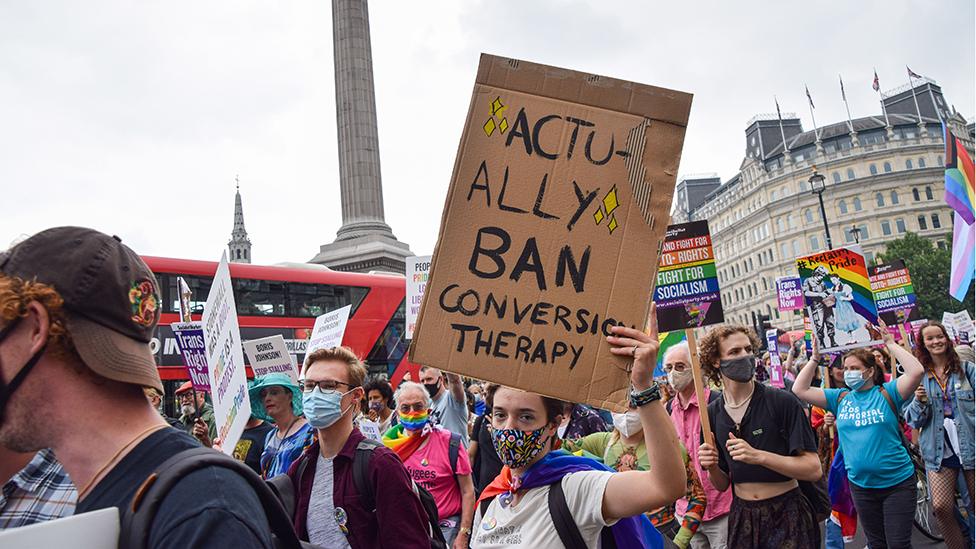
- Published19 October 2022
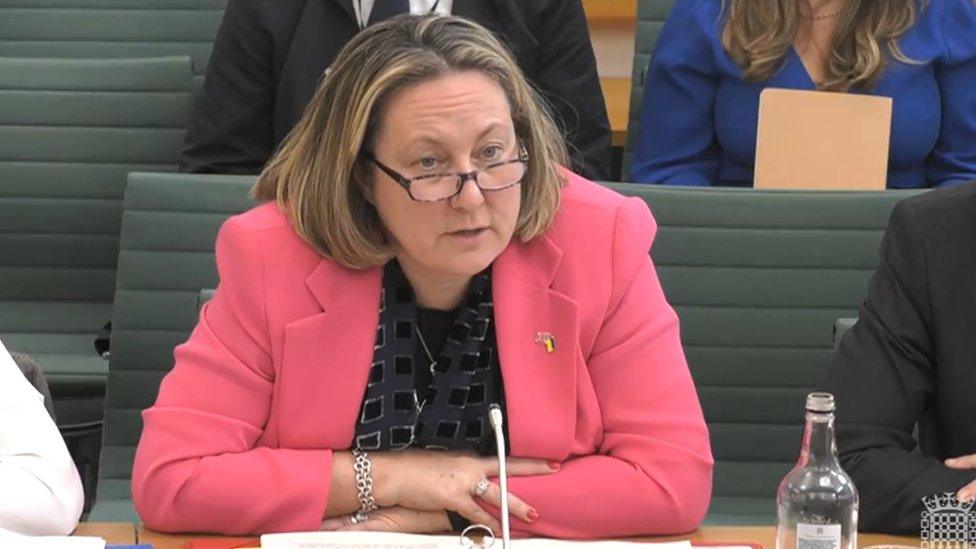
- Published26 October 2022
